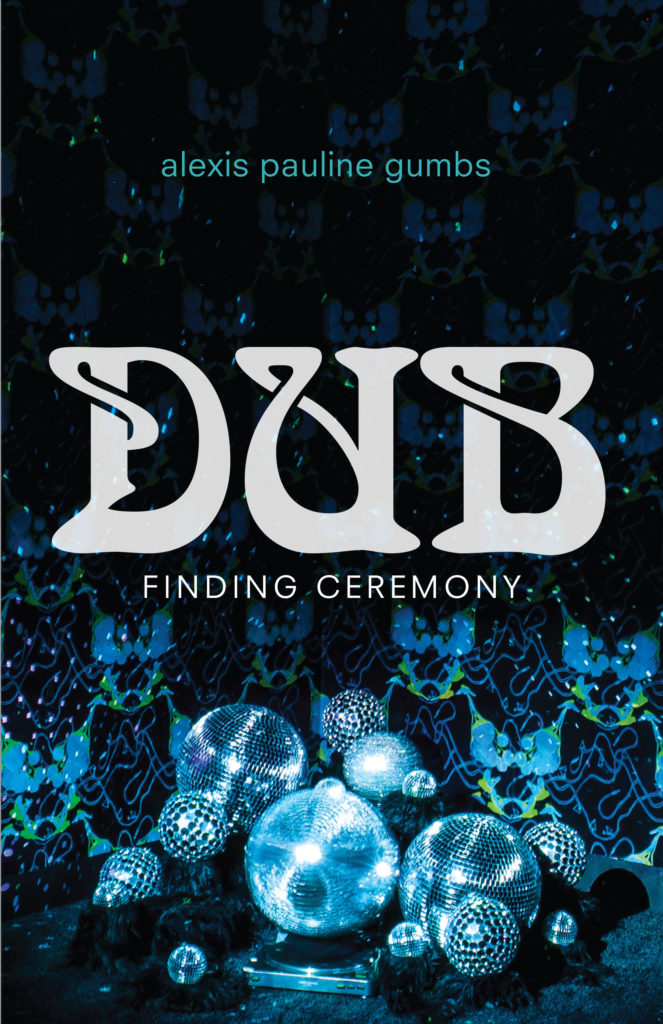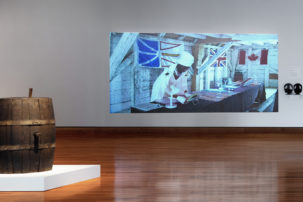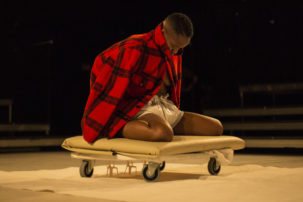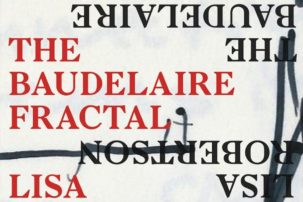Dub: Finding Ceremony, the last in a trilogy by poet Alexis Pauline Gumbs that includes Spill: Scenes of Black Feminist Fugitivity and M Archive: After the End of the World, is about listening, breathing and remembering. Sourced from Gumbs’s ancestry, her book’s many voices call out from the bottom of the Atlantic to dictate an underwater origin story. As Gumbs deepens her research, her sounds reassemble themselves many times—a chorus of sea creatures, a lost ancestor, the ocean itself—and remind us that scattered and sometimes conflicting voices haunt the Afro-diaspora.
In pulsing many voices together, Gumbs’s poems perform as songs or hymns. As I read aloud, I developed a listening practice, not only for the centrality of rhythm in the text, but also for how the act of speaking echoes across space and time. My own voice became the conjuring medium through which my ancestry was brought into the thinking space of the book. In the tradition of dub and other Black oral traditions, speaking aloud is a revolutionary tool, re-centring Black stories to reveal what is hidden, kept to ourselves or most urgent in our bodies. Readers of Dub, a text that centres a ceremony of ancestral listening, become immediately present with this alternative timeline.
Sometimes, the text listens to itself. Whales figure prominently in Dub’s meditations, those echo-locating, ancestral giants “immersed in a substance [they] could not breathe.” At one point in the book, the speaker-as-whale calls for someone else: “if the sound bounces back, between me and god, you are here. i can get the shape of you.” Other times—in “whale chorus,” for instance—the poem’s voice is a collective entity speaking from a distant past. “who do you think thought of the ocean?,” the book reads, “we who would be whales.”
I read Dub as a kind of handbook—notes on how to remember and listen, instructions for imagining a life otherwise. Like Spill’s treatment of Hortense Spillers’s work and M Archive’s treatment of M. Jacqui Alexander, Gumbs’s poems engage Sylvia Wynter as their oracle. Dub sets off from Wynter’s concept of Homo narrans, the idea that humans self-define through storytelling. It also follows other performance pedagogies from the Afro-diaspora—I thought of d’bi young anitafrika’s Anitafrika Method and Diane Roberts’s Arrivals Legacy Project. These women teach us how to tell our stories and ask for permission. In my experience working with Diane Roberts, listening is central to the process. I once participated in a workshop for a play she directed where we offered small, breathed intentions to a chosen ancestor, and then we listened—for sounds, movements, memories that might bubble up and out. Gumbs similarly considers an “interspecies ancestral listening,” as it is named in her introduction, to those ocean-bodies that were never considered human: bacteria, whales, corals and others. More broadly, Gumbs writes for queer, disabled, enslaved and Indigenous ancestors, and those of us still fighting for our humanity.
Dub also reminded me of Carole Boyce Davies’s Black Women, Writing, and Identity and her description of Toni Morrison’s “rememory” in Beloved: “re-membering or the bringing back together of the disparate members of the family in painful recall,” and “crossing the boundaries of space, time, history, place, language, corporeality and restricted consciousness in order to make reconnections.” In kind, Gumbs’s ancestral voices are re-collected as a chorus. Her technique of listening to remember redefines the understood racial, national and cultural contexts of Black diasporic existence. As Homo narrans telling our own stories, we descend from ocean bodies still speaking back to us. After all, Gumbs reminds us of what the ocean said: “there is nothing that is not me…know that and breathe. know that and breathe again.”









